Conservation
The following projects are underway as part of this programme
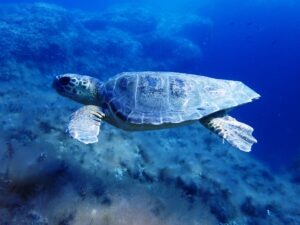
Recovery Centre for Marine Fauna (ARCA del Mar)
Paying attention to ill or injured marine fauna is one of the main lines of direct action taken by the Oceanogràfic Foundation, and it also answers a social demand for a response to the appearance of the emblematic species (mainly cetaceans, turtles and sharks) beached on our coasts.
The rescue and recovery of these species encompass one of our main reasons for existence, and everything learned from the animals kept in the Oceanogràfic installations is applied to, therefore, contribute to the conservation of oceans.
The recovery of marine fauna (including the multiple species catalogued by the International Union for Conservation of Nature as being endangered) is an excellent tool to strengthen the connection with visitors, and to engage society in protecting the sea through visits, workshops and courses with recovered animals, and by participating in the release of recovered animals.
Additionally, the recovery process provides a unique opportunity to undertake different research projects that derive from the recovery activity, and allows the study of threats and the causes of beaching of marine fauna. Access to these specimens allows different physiological parameters, adaptations to diving, behavioural patterns and responses to new treatments to be investigated, as well as studies on the use of habitat and migratory movements, etc., without compromising animal well-being, and notably impact knowledge of their biology and improvements to conservation strategies.
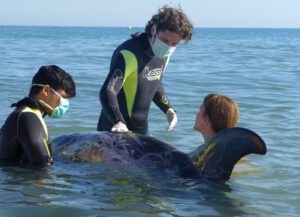
Beached animal service
The Oceanogràfic Foundation has a marine fauna rescue service available 24 hours a day, 365 days a year, to attend to live beached marine fauna anywhere in the Valencian Community
The aims of breeding endangered species of fish, reptiles and amphibians in captivity are to increase the survival of new generations after the hatching of eggs, and keeping the young in captivity in the first stages of life. This helps avoid the high predation on young animals that exists in the natural environment, and to reintroduce animals when they reach a size that allows them to survive in the environment.
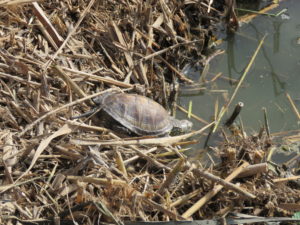
Head-starting sea turtles
Thanks to this conservation tool, the survival of sea turtle hatchlings, born on local beaches or incubated at the Oceanogràfic, is ensured during the most critical period of their development.
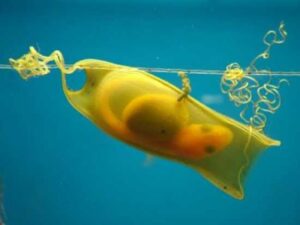
Recovery of accidentally captured elasmobranch eggs
Thanks to the collaboration with the fishing sector, viable shark eggs are rescued after being accidentally captured as part of discards of fishing vessels in the Valencian Community, which ensures the development of embryos until they have hatched and are released to the natural environment.
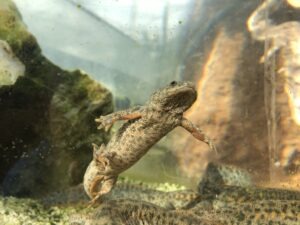
Breeding local endangered species in captivity
The Oceanogràfic Foundation, along with the Regional Ministry of Agriculture, the Environment, Climate Change and Rural Development, participates in projects for local endangered fauna, such as the European pond turtle (Emys orbicularis), Hermann’s tortoise (Testudo hermanni), Iberian ribbed newt (Pleurodeles waltl) and the Valencia toothcarp (Valencia hispanica), to increase populations through the breeding and/or maintenance of hatchlings in the first months of life to ensure their survival. The specimens obtained in these projects are released to the natural environment, and other actions are taken, such as restoration of ponds and water points.
Through specific projects, the state of different ecosystems is evaluated (with special emphasis placed on seabeds) to establish the level of their conservation, and to create a guide on good practices and conservation recommendations. Additionally, the evolution of seabeds is monitored over time, which includes corrective measures that may be taken.
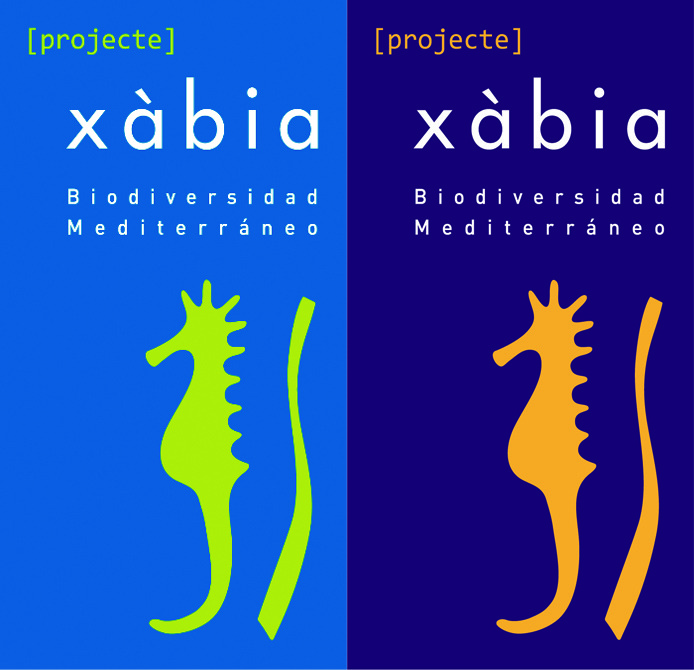
The Jávea Project
This project’s activity occurs based in the municipality of Jávea and aims to develop a model to monitor preventive and corrective measures by allowing the model to be self-managed and implemented in different coastal areas.
This project has the support of Biodiversity Foundation (Ministerio para la Transición Ecológica).

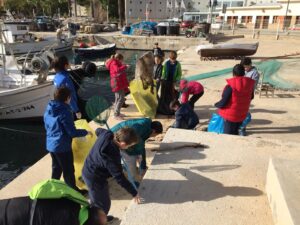
Restoration projects, cleaning beaches and seabeds
After identifying the points of interest, restoration tasks are carried out for different habitats with the help of volunteers. These tasks involve the elimination of waste and man-made waste, and the reforestation and reintroduction of native fauna in the area of inland waters and rivers, as well as coastal regions, in the Valencian Community.
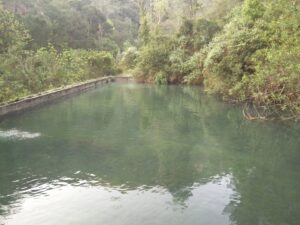
Restoring important water points for amphibians and biodiversity
Water points are the enclave of numerous uncommon and generally endangered species, including plants, invertebrates and amphibians. The restoration and recovery of these microhabitats play a vital role in the conservation of populations of amphibians and other species. In this context, the Oceanogràfic Foundation works to restore diverse water points, overcome the deficiencies observed thanks to the participation of local organisations and volunteers to ensure the permanency of actions.
The Oceanogràfic Foundation intends to significantly contribute to sustainable fishing activity by applying knowledge and available technical equipment as far as many aspects are concerned in order to ensure the conservation of seas and the permanency of this important economic activity.
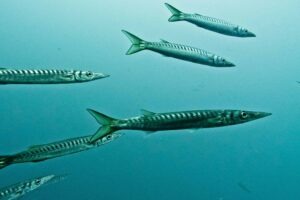
Interaction between dolphins and smaller fishing gear
Relevant studies are currently being conducted on the interactions between common bottlenose dolphins (Tursiops truncatus) and trammel net fishing in local guilds in an attempt to coordinate coexistence with local fauna, in this case dolphins, with traditional trades so as to ensure the permanency of both.